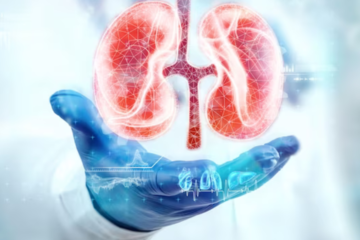
Cloudy urine is a common concern that many people encounter at some point in their lives. While urine typically appears clear and pale yellow, factors such as hydration levels, diet, and certain medical conditions can cause it to become cloudy in appearance. Understanding the potential causes, symptoms, and treatment options for cloudy urine is essential for maintaining optimal urinary health and addressing any underlying issues promptly. In this blog post, we’ll explore the various factors that can lead to cloudy urine, common symptoms to watch out for, and effective treatment approaches to ensure your urinary tract stays healthy and functional. Whether you’re experiencing cloudy urine yourself or simply seeking to expand your knowledge on the topic, this guide aims to provide valuable insights and guidance for navigating this common but often concerning phenomenon.
What Causes Cloudy Urine?
Cloudy urine can be attributed to a variety of factors, ranging from benign to more serious underlying conditions. Understanding these causes is crucial for determining the appropriate course of action. Let’s delve into each potential cause in detail:
- Dehydration: One of the most common reasons for cloudy urine is dehydration. When your body is lacking adequate fluids, urine becomes more concentrated, leading to cloudiness. Dehydration can occur due to various reasons, including insufficient water intake, excessive sweating, vomiting, diarrhoea, or certain medical conditions like diabetes.
- Urinary Tract Infections (UTIs): UTIs are bacterial infections that can affect any part of the urinary system, including the kidneys, bladder, ureters, and urethra. Cloudy urine is a common symptom of UTIs, often accompanied by other signs such as a strong or foul-smelling odour, a burning sensation during urination, frequent urination, and pelvic discomfort or pressure.
- Kidney Stones: These are solid masses made of crystals that form in the kidneys when substances like calcium, oxalate, and uric acid accumulate and crystallise. When these stones pass through the urinary tract, they can cause irritation, inflammation, and even obstruction, leading to cloudy urine along with severe pain in the abdomen, groin, or back. The urine may also contain blood or appear pinkish due to the presence of blood.
- Sexually Transmitted Infections (STIs): Certain STIs, such as gonorrhoea and chlamydia, can cause cloudy urine. These infections typically affect the urinary tract and reproductive organs and may be accompanied by symptoms like pain or discomfort during urination, genital itching, unusual discharge, and pelvic pain.
- Medications: Some medications can cause changes in urine colour and clarity, leading to cloudiness as a side effect. For example, antibiotics, diuretics, and certain vitamins may alter the composition of urine temporarily. It’s essential to consult a healthcare professional if you notice changes in urine appearance after starting a new medication.
- Pregnancy: Cloudy urine is relatively common during pregnancy due to hormonal changes and increased fluid intake. However, pregnant individuals should be vigilant about any changes in urinary habits, as cloudy urine could also be a sign of a UTI or other pregnancy-related complications.
- Other Medical Conditions: Various medical conditions can contribute to cloudy urine as a secondary symptom. These may include diabetes, kidney disease, urinary tract obstructions (such as benign prostatic hyperplasia in men), and autoimmune disorders affecting the kidneys or bladder.
Symptoms Associated with Cloudy Urine
Cloudy urine can be accompanied by various symptoms, which may vary depending on the underlying cause. Understanding these symptoms is essential for identifying potential issues and seeking appropriate medical attention. Here’s a detailed explanation of the symptoms associated with cloudy urine:
- Burning or Pain During Urination: One of the hallmark symptoms of urinary tract infections (UTIs) is a burning sensation or pain during urination. This discomfort is caused by irritation and inflammation of the urinary tract lining due to bacterial infection. The burning sensation can range from mild to severe and may be accompanied by cloudy urine.
- Frequent Urination: Increased frequency of urination, also known as urinary urgency, is another common symptom of UTIs and other urinary tract issues. Individuals may feel the need to urinate more frequently than usual, often with only small amounts of urine being passed each time. This symptom is often accompanied by cloudy urine, especially in the case of infections.
- The urgency to Urinate: Along with frequent urination, individuals with cloudy urine may experience a sudden and urgent need to urinate, even if the bladder is not full. This urgency can be distressing and may interfere with daily activities.
- Fever or Chills: Systemic symptoms such as fever and chills may accompany cloudy urine, particularly in cases of severe urinary tract infections or kidney infections (pyelonephritis). Fever is the body’s response to infection, and chills often accompany fever as the body attempts to regulate its temperature.
- Lower Abdominal or Pelvic Pain: Pain or discomfort in the lower abdomen or pelvic region is common in conditions affecting the urinary tract, such as UTIs, kidney stones, and bladder infections. The pain may range from mild to severe and can be intermittent or constant, depending on the underlying cause.
- Foul-Smelling Urine: Cloudy urine may have an unusual or foul odour, especially in cases of urinary tract infections or conditions causing urinary retention. The odour is typically strong and unpleasant, resembling ammonia or sulfur.
- Blood in the Urine (Hematuria): In addition to cloudiness, urine may contain visible blood or appear pinkish or reddish in color. Hematuria can result from various conditions, including urinary tract infections, kidney stones, trauma to the urinary tract, and certain underlying medical conditions such as kidney disease or bladder cancer.
- Nausea or Vomiting: In more severe cases of urinary tract infections or kidney issues, individuals may experience nausea and vomiting, often accompanied by other symptoms like fever, chills, and abdominal pain. These systemic symptoms indicate a more significant infection or complication requiring prompt medical attention.
- Fatigue or Weakness: Chronic urinary tract issues, such as recurrent UTIs or kidney stones, can lead to fatigue and weakness due to the body’s immune response and inflammation. Additionally, conditions like kidney disease can cause electrolyte imbalances and anaemia, further contributing to fatigue.
Treatment Options for Cloudy Urine
The treatment for cloudy urine depends on the underlying cause. Here are some common treatment options:
- Hydration: If dehydration is the cause of cloudy urine, increasing fluid intake, particularly water, can help clear up the urine and prevent future episodes of cloudiness.
- Antibiotics: For bacterial infections like UTIs and STIs, antibiotics are usually prescribed to clear the infection and relieve symptoms. It’s essential to complete the full course of antibiotics as prescribed by a healthcare provider.
- Pain Management: For conditions like kidney stones, pain management may be necessary to alleviate discomfort. Over-the-counter pain relievers or prescription medications may be recommended.
- Lifestyle Changes: Making lifestyle changes such as avoiding irritants like caffeine and alcohol, practising good hygiene, and practising safe sex can help prevent recurrent UTIs and STIs.
- Medical Procedures: In some cases, medical procedures may be necessary to treat underlying conditions causing cloudy urine. For example, kidney stones may require surgical intervention to remove.
- Monitoring: For pregnant individuals experiencing cloudy urine, regular monitoring by a healthcare provider is essential to ensure there are no complications and to address any concerns promptly.
When to Seek Medical Attention
While occasional it may not be cause for concern, persistent cloudiness, especially when accompanied by other symptoms, warrants medical attention. Additionally, if cloudy urine is accompanied by severe pain, fever, or blood in the urine, it’s crucial to seek medical help promptly. A healthcare provider can conduct a thorough evaluation, including a physical examination, urine tests, and possibly imaging studies, to determine the underlying cause and appropriate treatment.
Conclusion
Cloudy urine can be a symptom of various underlying health issues, ranging from dehydration to more serious conditions like urinary tract infections and kidney stones. Understanding the potential causes, symptoms, and treatment options for cloudy urine is essential for prompt diagnosis and management. If you’re experiencing persistent cloudiness or other concerning symptoms, don’t hesitate to seek medical attention for proper evaluation and treatment. Remember, early intervention can help prevent complications and promote better overall health and well-being.
Dr. Sumit Sharma is an experienced urologist, andrologist, and kidney transplant surgeon with over 20 years of clinical experience. He is the founder of the Department of Urology at multiple hospitals in Gurgaon and has established successful kidney transplant programs across the city.
With a commitment to the highest standards, Dr. Sumit Sharma ensures personalised, professional treatment, making your well-being the primary focus. Choose Dr. Sumit Sharma for outstanding Urological care in Gurgaon.



